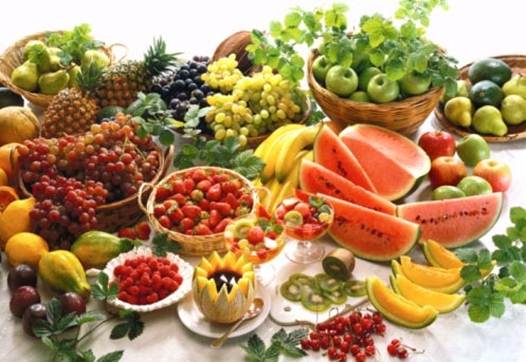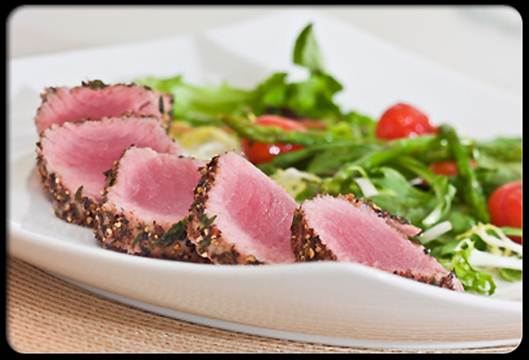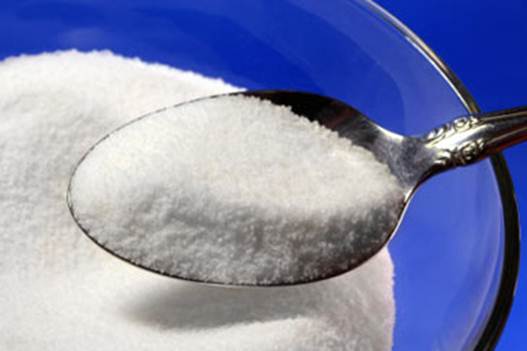8. It's hard to get sufficient protein from a vegetarian or vegan diet.
(Vegans eat no animal products, including
dairy and eggs.) "It's not hard at all," stresses Doug McNish, a
raw/vegan chef in Toronto and author of Eat Raw, Eat Well:
400Raw, Vegan and Gluten-Free Recipes (Robert Rose, 2012).
("Raw chef?" Isn't that a contradiction? Nope. For more information
on what raw-food preparation involves, see the sidebar above.) A wide variety
of plant foods contain protein, including beans, legumes, nuts and nut butters,
and seeds. "Hemp seed is probably my favorite source," McNish says.
"One tablespoon contains up to 5 grams of protein, which is equivalent to
an egg. If you sprinkle three tablespoons of hemp seed on a salad, that's 15
grams." (Many bulk-food and health food stores stock hemp seed.)

It's
hard to get sufficient protein from a vegetarian or vegan diet
That alone makes a sizable dent in the
minimum 0.8 gram of protein per kilogram of body weight that's recommended for
a relatively sedentary person, or even the 1.2 to 1.7 grams/kilo suggested for
more athletic, active people. (How do those numbers add up? "If someone
weighs 60 kilograms, that'sroughly60 grams of protein," says Lindzie
O'Reilly, lead dietitian with the Health and Performance Centre at the
University of Guelph. "If you spread that over the course of a day, that
might mean aiming for 15 grams at each meal and five to 10 grams for
snacks.")
Incidentally, vegetarian food has come a
long way since the days of bland brown rice and limp sprouts: you can now
easily find recipes for delicious vegan versions of everything from brownies to
gravy and soup stock. Of course, that brings us to correct another myth; that a
food is free of animal products doesn't necessarily mean it's inherently
healthy. For instance, french fries made in vegetable oil are vegan.
9. All soy-based foods are nutritious and/or heart-healthy.
Some soy-based products, such as certain
veggie dogs and cold cuts, are highly processed, making them foods that should
be consumed sparingly. For instance, "Many soy protein bars and frozen soy
patties are made with soy protein isolate," Tsang explains, meaning that
they contain only a fraction of the nutrients found in whole soybeans, and in a
highly refined form. "I've even seen light soy milks made with water and
soy flour," she adds. Such products are unlikely to confer benefits
comparable to those of less processed soy foods, which have been shown to curb
high blood pressure, reduce unhealthy LDL cholesterol and triglycerides, buoy
levels of beneficial HDL cholesterol, and improve blood-vessel elasticity.
Consequently, Tsang suggests that, when choosing soy foods, you scan the
ingredients list for the words "whole soy" or "whole soybeans."

Heart
healthy food is delicious and nutritious
10. Artificial sweeteners lead to weight gain.
While some studies have found that
diet-soda drinkers, for example, tend to gain more weight or grow larger around
the waist than do people who avoid the stuff, the University of Ottawa's Dr.
Freedhoff emphasizes that such research doesn't support the theory that
artificial sweeteners or other ingredients in diet soda are the under lying
cause. The purported link could be due to other factors, such as the
possibility that people who drink diet soda overestimate the number of calories
they've "saved" and splurge excessively elsewhere ("I skipped
the sugary soda, so I'll get bacon and cheese on my burger and upsize my
fries.")

Artificial
sweeteners lead to weight gain
In fact, the purported connection between
weight gain and sugar substitutes dissolves in higher-quality research.
"In virtually every study I've come across looking at artificial
sweeteners for weight loss or weight management, artificial sweeteners have
been shown to be beneficial," Freedhoff says. "They have not been
linked to weight gain."